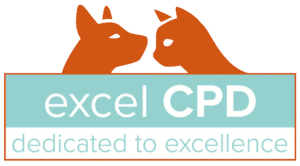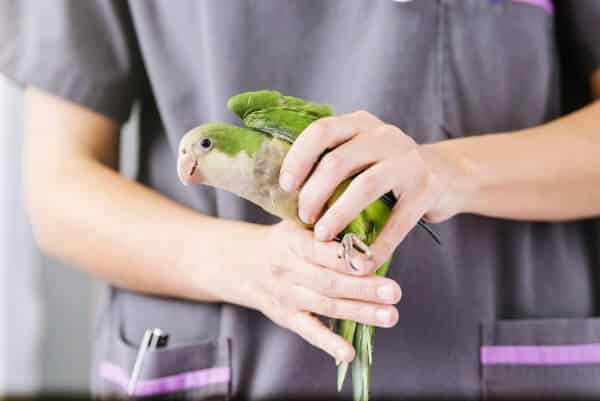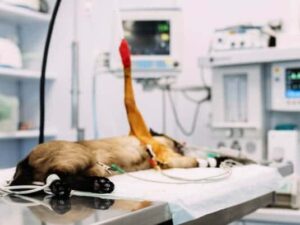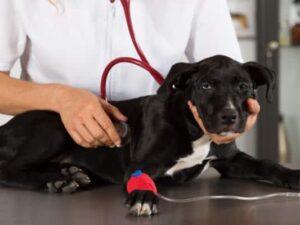
Menu


£255.00 Ex VAT
Start: 14th October 2024
CPD: 15 hours (UK), 15 points (AUS, NZ) over 6 / 8 weeks
Level: Introduction / Intermediate
This course is aimed at nurses working in general practice
The aim of this course is to introduce veterinary nurses to exotics in practice. The emphasis will be placed on examination and handling techniques as well as essentials of anaesthesia, imaging techniques, and making the veterinary visit as stress-free as possible for pets. This will enable exotics and small mammals to be incorporated into any small animal practice with standard facilities.
Learning objectives
After completion of this week, participants should be able to:
Learning materials this week:
(released on Monday morning for on demand learning until the course ends – approximate timings)
Learning objectives
After completion of this week, participants should be able to:
Learning materials this week:
(released on Monday morning for on demand learning until the course ends – approximate timings)
Learning objectives
After completion of this week, participants should be able to:
Learning materials this week:
(released on Monday morning for on demand learning until the course ends – approximate timings)
Learning objectives
After completion of this week, participants should be able to:
Learning materials this week:
(released on Monday morning for on demand learning until the course ends – approximate timings)
Learning objectives
After completion of this week, participants should be able to:
Learning materials this week:
(released on Monday morning for on demand learning until the course ends – approximate timings)
Learning objectives
After completion of this week, participants should be able to:
Learning materials this week:
(released on Monday morning for on demand learning until the course ends – approximate timings)
This course will be fully tutored by John Chitty and will consist of 15 hours of CPD given in various formats, including tutorials, tasks, case studies, forum discussions and quizzes. This course is tutored for 6 weeks, followed by a two week extension of untutored ‘catch up’ time, before the course officially ends.
All delegates will then have unlimited lifetime access to the learning material for future reference
John Chitty BVetMed, Cert ZooMed, CBiol, MRSB, MRCVS
RCVS Advanced Practitioner in Zoological Medicine, Anton Vets
John qualified from the RVC in 1990 and gained the RCVS Certificate in Zoological Medicine in 2000. He is director of a small animal and exotics practice in Hampshire, with an exotics and zoo caseload. John is the editor and author of four texts on avian, rabbit and tortoise medicine, and the author of various book chapters and papers. He is also secretary of the European Association of Avian Veterinarians and the 2017/18 president of the BSAVA
This online course is worth 15 hours of CPD.
A certificate will be available from the ‘My Courses’ section, for you to download and print, once you have completed the course. A permanent record of your total CPD hours will also be recorded in your account section.
The Australian Veterinary Nurse and Technician (AVNAT) Regulatory Council has allocated 15 AVNAT CPD points to this continuing education activity.
This course is also recognised by the New Zealand Veterinary Nursing Association (NZVNA) as providing 15 CPD points.
Upon purchase you will be registered to attend the course, for 6 weeks from the start date. The course will consist of various interactive tasks and lessons, including quizzes, case studies, forum discussions and further reading material.
The course is fully tutored, with new material will be provided each Monday morning, but the onus will be on the individual delegate to ensure that all tasks are fully complete. The certificate will only be issued at the end of the course when all tasks have been accomplished. Fewer CPD hours will be awarded at the the end of the course if there are unfinished tasks or there has been no contribution to the discussion forum, for example
The course is fully flexible, and there are no weekly ‘deadlines’ – the lessons and tasks may be completed whenever is convenient for each delegate, and any live lessons with be recorded and made available later that same day. Furthermore, all the course material will be available for a further 2 weeks, to allow delegates the opportunity to catch up on missed lessons and tasks, or to take the opportunity to delve further into the suggested reading texts. Please note however, that the course will not be tutored by the speaker during these final two weeks, but the time spent will count towards your CPD hours
After 8 weeks, the course will be complete and there will be no further opportunity to gain the certificate or CPD hours, however, you will have unlimited lifetime access to the tutorials, further reading and quizzes for future reference. If you make any personal notes during the course using the ‘take notes’ app, these will be saved, along with your certificate and CPD record for permanent access in ‘My CPD’
This course has been listed as ‘Introduction / Intermediate’ level
All of our courses are aimed at veterinary nurses in general practice, but everyone who works in the veterinary profession is very welcome to attend, whether you are a clinical receptionist, veterinary surgeon, student nurse or have been a qualified nurse for over 20 years!
The courses are not formally assessed for skill level, so the following CPD levels are just a rough guide to help you decide if a course may be more or less suitable:
Introduction
– maybe most suitable for qualified nurses in general practice approaching a new topic or looking for a refresher course
Intermediate
– maybe most suitable for qualified nurses in general practice along with referral / specialist nurses looking for a refresher course
Advanced
– maybe most suitable for referral / specialist nurses and highly experienced qualified nurses in general practice
You will earn 255 Pawprint Points (£25.50 website credit) when you purchase this course
Our loyalty scheme rewards you with 10% in website credit to spend on future courses. Choose pay with Pawprint Points during checkout.
Please ask your practice manager or accounts department to visit the website, register an account in their own name, and during checkout, complete the ‘delegate name’ and ‘delegate email’ sections with your personal details. We will then register you a personal account on your behalf, and transfer the course booking over to your new personal account. We will of course email you all the information you need to access this new account and your CPD course.
If you need an invoice and no other payment method is available to you, then please email [email protected] with all the following information:
Please note the following:





Excel CPD specialises in providing online CPD for veterinary nurses and technicians all over the globe. Our courses are also fully approved by AVNAT for our nursing colleagues in Australia and New Zealand.
©2009-2024 Excel CPD | Terms and Conditions | Privacy Policy
Jessica Kingdom –
I really enjoyed how the 6 weeks had a structure into the various exotic species we may encounter in practice. The weeks had a clear structure and provided a range of information and resources in order to complete the CPD and tasks provided.
Rated: Introduction level
(Newly qualified <2 years - UK)
Nicole Bichard –
4/5 as I found the information and tutorials very useful but without putting my knowledge to use physically yet I am unable to fully take it inn yet so this will be more up to me but had there been maybe a little something extra at the end that was more of a back and forth communication I may have had more of it retained immediately.
Rated: Introduction / intermediate level
(Newly qualified <2 years - UK)
Jennifer Cairns –
I found this a great introduction into exotics. It gives me knowledge that can help me as a vet nurse but also support the vets as well
Rated: Introduction level
(Newly qualified <2 years - UK)
Lana Thompson –
I enjoyed learning online within my own time and ease, with very little stress and pressure. There is still the ability to ask questions if you are unsure. I found it quite informative information and the ability to share and apply within practice to colleagues.
Rated: Introduction level
(Newly qualified <2 years - UK)
Sophie Oliver –
As someone who has done little work with exotics, this was a very informative and interesting course, and a great starting point for anyone wishing to pursue an interest in a variety of exotic species. I would definitely recommend this course!
Rated: Introduction level
(Qualified RVN in general practice <5 years - UK)
Lucy Griffiths –
Really well put together, interactive and informative.
Rated: Intermediate level
(Qualified RVN in general practice <5 years - UK)